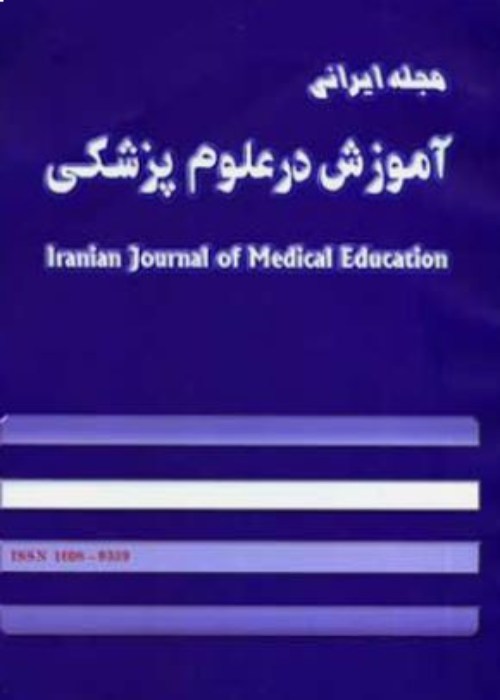Conformity with Clinical Setting among Nursing Students as a Way to Achieve Belongingness: A Qualitative Study
Author(s):
Abstract:
Introduction
Belongingness is one of the most important needs among students in order to have proper performance in clinical setting. If basic needs of students to security and belonging are not met, higher level needs will be of less importance and there will not be an opportunity to consider them. The purpose of this study is to present a set of findings by studies exploring nursing students’ experiences of belongingness in clinical settings. We present the findings related to the theme of conformity to clinical settings in this paper.Methods
In this phenomenological study, 10 undergraduate students from Schools of Nursing and Midwifery affiliated to Lorestan University of Medical Sciences were selected using purposive sampling and semi-structured interviews were done. All interviews were recorded and then transcribed verbatim. Data was analyzed by Giogi’s method. Results
In relation to the theme of "conformity with the clinical setting" as one of the main themes of the study, a total of 3 categories and 11 subcategories were deriviated. Compliance with clinical environments (subcategories included observing the rules, familiarity with clinical environment, and trying to adapt with environment), establishing a safe atmosphere (subcategories consisted of safe physical environment, psychologically safe environment, socially safe environment, and improvement of interpersonal interactions) and the impact of community networks of nursing (subcategories consisted of peers and nursing staff, nurses as role models, the key role of head nurses and clinical instructors). Conclusion
In order to achieve belongingness in clinical setting, there is an urgent need for reinforcement of compliance and adaptation of nursing students with clinical environments and information about the settings and it’s policies, relevant agency personnel, clinical atmosphere with trust, security and improvement, interpersonal interaction considering the impact of social networks, including peers, clinical instructors, and nursing staff.Language:
Persian
Published:
Iranian Journal of Medical Education, Volume:14 Issue: 3, 2014
Pages:
216 to 231
magiran.com/p1280239
دانلود و مطالعه متن این مقاله با یکی از روشهای زیر امکان پذیر است:
اشتراک شخصی
با عضویت و پرداخت آنلاین حق اشتراک یکساله به مبلغ 1,390,000ريال میتوانید 70 عنوان مطلب دانلود کنید!
اشتراک سازمانی
به کتابخانه دانشگاه یا محل کار خود پیشنهاد کنید تا اشتراک سازمانی این پایگاه را برای دسترسی نامحدود همه کاربران به متن مطالب تهیه نمایند!
توجه!
- حق عضویت دریافتی صرف حمایت از نشریات عضو و نگهداری، تکمیل و توسعه مگیران میشود.
- پرداخت حق اشتراک و دانلود مقالات اجازه بازنشر آن در سایر رسانههای چاپی و دیجیتال را به کاربر نمیدهد.
In order to view content subscription is required
Personal subscription
Subscribe magiran.com for 70 € euros via PayPal and download 70 articles during a year.
Organization subscription
Please contact us to subscribe your university or library for unlimited access!


